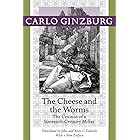| Digital List Price: | $24.95 |
| Kindle Price: | $20.75 Save $4.20 (17%) |
| Sold by: | Amazon.com Services LLC |
Your Memberships & Subscriptions

Download the free Kindle app and start reading Kindle books instantly on your smartphone, tablet, or computer - no Kindle device required.
Read instantly on your browser with Kindle for Web.
Using your mobile phone camera - scan the code below and download the Kindle app.

OK
Fugitive Freedom: The Improbable Lives of Two Impostors in Late Colonial Mexico Kindle Edition
The curious tale of two priest impersonators in late colonial Mexico
Cut loose from their ancestral communities by wars, natural disasters, and the great systemic changes of an expanding Europe, vagabond strangers and others out of place found their way through the turbulent history of early modern Spain and Spanish America. As shadowy characters inspiring deep suspicion, fascination, and sometimes charity, they prompted a stream of decrees and administrative measures that treated them as nameless threats to good order and public morals. The vagabonds and impostors of colonial Mexico are as elusive in the written record as they were on the ground, and the administrative record offers little more than commonplaces about them. Fugitive Freedom locates two of these suspect strangers, Joseph Aguayo and Juan Atondo, both priest impersonators and petty villains in central Mexico during the last years of Spanish rule.
Displacement brought pícaros to the forefront of Spanish literature and popular culture—a protean assortment of low life characters, seen as treacherous but not usually violent, shadowed by poverty, on the move and on the make in selfish, sometimes clever ways as they navigated a hostile, sinful world. What to make of the lives and longings of Aguayo and Atondo, which resemble those of one or another literary pícaro? Did they imagine themselves in literary terms, as heroes of a certain kind of story? Could impostors like these have become fixtures in everyday life with neither a receptive audience nor permissive institutions? With Fugitive Freedom, William B. Taylor provides a rare opportunity to examine the social histories and inner lives of two individuals at the margins of an unfinished colonial order that was coming apart even as it was coming together.
- LanguageEnglish
- PublisherUniversity of California Press
- Publication dateFebruary 23, 2021
- File size1840 KB
Customers who bought this item also bought
Editorial Reviews
Review
"William Taylor is one of Mexican history’s great masters of social history. . . .No one historian is going to solve this riddle about fiction and lived reality, and Taylor’s lively study offers welcome grist for the historiographic mill on the subject." ― Journal of Arizona History
"In sum, Fugitive Freedom weaves together extraordinary Inquisition cases to illuminate the cracks and imperfections built into the edifice of the Spanish Empire. No doubt, historians, students, and enthusiasts of colonial Mexico will take delight in Taylor’s sharp analysis and supple prose."
― H-Net: Humanities & Social Sciences Online"William B. Taylor has written a wonderfully entertaining and accessible story about two Mexican pícaros who lived extraordinary lives at the margins of colonial society. . . . this is an important book that gives us new insight into life in colonial Mexico." ― EIAL: Estudios Interdisciplinarios de América Latina
"This readable account of . . . curious lives opens windows onto many aspects of everyday life in colonial Mexico." ― Literary Review
"The book’s detail and verve, along with Taylor’s penchant for provocative questions make Fugitive Freedom ideal for the undergraduate classroom, including not only courses on Latin American history, but on the historian’s craft as well." ― The Middle Ground Journal
"Compact and beautifully written."
― Hispanic American Historical ReviewFrom the Inside Flap
"Precarity bites and misfortune beckons, struggle and imposture are ubiquitous, and only fictions seem true. Taylor's investigation offers a remarkably immersive experience. Broad and penetrating research and a light touch allow two of society's purported ne'er-do-wells to emerge from the fascinating stories they tell."&;&;Kenneth Mills, J. Frederick Hoffman Professor of History, University of Michigan
"Erudite and empathetic in equal measure, Fugitive Freedom challenges us to rethink our understanding of late colonial Mexico. Taylor&;s meticulous reconstruction of the hidden worlds of two outcasts&;both priest impersonators&;reveals not only their fragmented and marginalized lives but also the fractures and chasms in the edifice of the Spanish empire more broadly. It is a stunning work of historical scholarship."&;&;Susan Deans-Smith, Associate Professor of History, University of Texas at Austin
From the Back Cover
"Precarity bites and misfortune beckons, struggle and imposture are ubiquitous, and only fictions seem true. Taylor's investigation offers a remarkably immersive experience. Broad and penetrating research and a light touch allow two of society's purported ne'er-do-wells to emerge from the fascinating stories they tell."––Kenneth Mills, J. Frederick Hoffman Professor of History, University of Michigan
"Erudite and empathetic in equal measure, Fugitive Freedom challenges us to rethink our understanding of late colonial Mexico. Taylor’s meticulous reconstruction of the hidden worlds of two outcasts—both priest impersonators—reveals not only their fragmented and marginalized lives but also the fractures and chasms in the edifice of the Spanish empire more broadly. It is a stunning work of historical scholarship."––Susan Deans-Smith, Associate Professor of History, University of Texas at Austin
About the Author
William B. Taylor is Muriel McKevitt Sonne Professor of History, Emeritus, at the University of California, Berkeley. His books on Latin American history include Theater of a Thousand Wonders: A History of Miraculous Images and Shrines in New Spain, as well as Drinking, Homicide, and Rebellion in Colonial Mexican Villages and Magistrates of the Sacred: Priests and Parishioners in Eighteenth-Century Mexico.
Product details
- ASIN : B08V88ZHSX
- Publisher : University of California Press; 1st edition (February 23, 2021)
- Publication date : February 23, 2021
- Language : English
- File size : 1840 KB
- Text-to-Speech : Enabled
- Screen Reader : Supported
- Enhanced typesetting : Enabled
- X-Ray : Not Enabled
- Word Wise : Not Enabled
- Sticky notes : On Kindle Scribe
- Print length : 224 pages
- Page numbers source ISBN : 0520368568
- Best Sellers Rank: #2,555,530 in Kindle Store (See Top 100 in Kindle Store)
- #928 in History of Mexico
- #1,821 in History of Central America
- #4,142 in Mexico History
- Customer Reviews:
About the author

William B. Taylor, Professor Emeritus of History, University of California, Berkeley.
I didn't expect to write Fugitive Freedom, but after finishing Theater of a Thousand Wonders: A History of Miraculous Images and Shrines in New Spain in 2016, one of my long unanswered questions about early modern Spain and Mexico's colonial history crept back in. What to make of the reported profusion of "vagabonds" and impostors, and the predicaments of strangers more generally in the story of how the Spanish empire in America was coming together and coming apart at the same time?
During my first year as an aspiring historian of Latin America in the 1960s, I had purchases a copy of Norman Martin's Los vagabundos en la Nueva España. Siglo XVI from a used bookseller on the storied Calle de Donceles in downtown Mexico City. It opened that subject for me, but since it was based on government decrees and regulations, it portrayed vagabondage only as an urgent problem from the viewpoint of viceroys and judges. It had little to say about the peripatetic rogues and rascals themselves. So I went looking for them in Mexico's national archive.
But even in the archives these impostors were as elusive in the historical record as in real life. Vagabundos and my questions about empire and disorder remained--in fact, my first publication centered on an eighteenth-century account of runaway slaves in a remote part of the tropical fringes of southern Veracruz, and a later book took up village uprisings. But I turned to more accessible subjects where I could dig deeper and hope to make a more definite contribution to understanding the tensions and accommodations in this long-lived imperial order over time--researching peasant communities, land systems, shrines and miraculous images, and priests in their parishes.
Then, in a fit of downsizing three years ago I went through my old research notes and microfilms. Opening a box of Mexican Inquisition materials I hoped to find something for two colleagues who were working on transcriptions and translations of Inquisition records for classroom use. Among the microfilms was part of a late eighteenth-century trial record for Joseph Aguayo, a picaresque thief, escape artist and serial impersonator of priests and colonial officials in central Mexico. I soon discovered that Aguayo also came before the Inquisition twice more and that the full Inquisition record of eyewitness testimony as well as Aguayo's own words and reported activities could finally bring me close to the lifeways and circumstances of one of those vagabond ghosts. Juan Atondo, a second priest impersonator whose life is also richly document in an Inquisition trial record from the late colonial period seemed much like Aguayo at first glance until I read the case more closely.
These fortunate discoveries at last enabled me to write Fugitive Freedom: The Improbable Lives of two Imposters in Late Colonial Mexico. In this book the eventful lives and sentiments of these two dubious characters are set alongside each other and framed by the turbulent history of expansion and massive disruption and displacement in early modern Spain and Spanish America. What emerges is a story of empire that merges with the picaresque literature of the time (with a nod to pícaros now), a prevailing climate of original sin, deception, suspicion, and disenchantment, New Spain's Inquisition in the eighteenth century, mental illness as it was understood then, and old and new meanings of freedom. So my two restless sons of Proteus--that elusive shape-shifting old man of the sea who gives up his knowledge grudgingly and never competely--were worth waiting for after all.
Customer reviews
Customer Reviews, including Product Star Ratings help customers to learn more about the product and decide whether it is the right product for them.
To calculate the overall star rating and percentage breakdown by star, we don’t use a simple average. Instead, our system considers things like how recent a review is and if the reviewer bought the item on Amazon. It also analyzed reviews to verify trustworthiness.
Learn more how customers reviews work on Amazon









